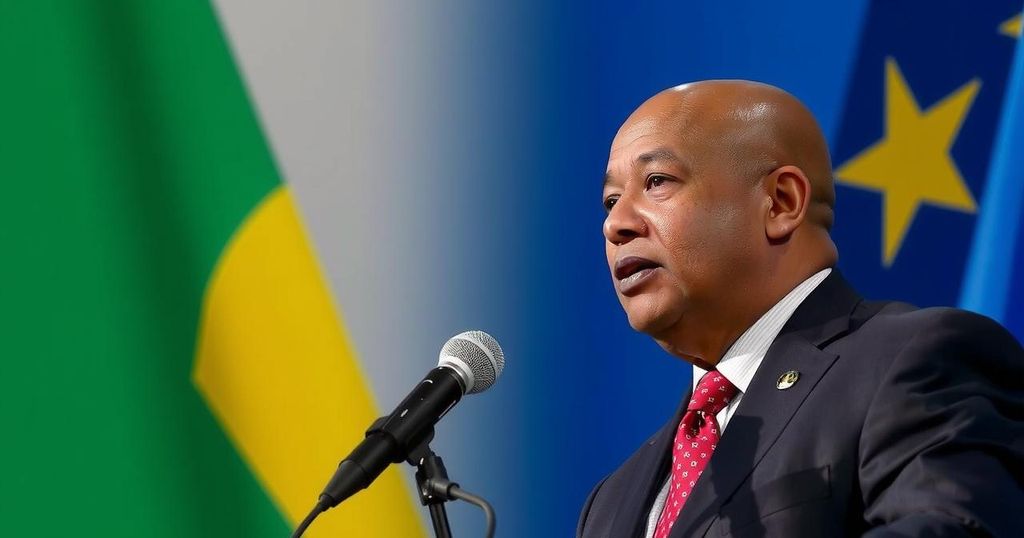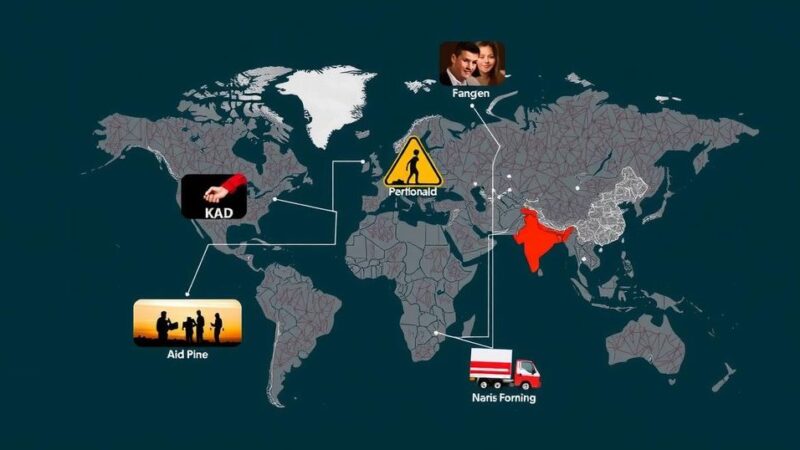Somalia has declared Ethiopian diplomat Mr. Ali Mohamed Adan persona non grata, mandating his departure within 72 hours due to actions incompatible with his diplomatic role. This move reflects Somalia’s growing assertiveness in international relations and may alter its diplomatic posture with Ethiopia. Observers are watching closely for Ethiopia’s response, as this could escalate tensions or prompt calls for mediation from the African Union.
In a decisive assertion of its sovereignty, Somalia has expelled Mr. Ali Mohamed Adan, a Counselor II at the Ethiopian Embassy, declaring him persona non grata. This action, communicated by Somalia’s Ministry of Foreign Affairs and International Cooperation, requires the diplomat to vacate the country within a 72-hour timeframe. Somali authorities have cited his conduct as being incompatible with diplomatic norms, specifically referencing violations of the Vienna Convention on Diplomatic Relations of 1961, particularly Articles 41 and 42, which mandate respect for the host nation’s laws and prohibit interference in domestic affairs. This development marks a pivotal moment in the relationship between Somalia and Ethiopia and may herald a broader shift in Somalia’s diplomatic stance. Analysts interpret this as a reflection of Somalia’s growing confidence in the international arena, aligning with a wider trend among African nations which are increasingly asserting their sovereignty and insisting on the observance of international diplomatic standards. The expulsion emphasizes Somalia’s commitment to its national interests, establishing a precedent for the expected conduct of foreign diplomats in compliance with international norms. The diplomatic community is now closely observing Ethiopia’s response to this incident. Historically, expulsions of diplomats signify a severe breach of trust and the potential for escalating tensions. Depending on Ethiopia’s reaction, there may arise a necessity for mediation from the African Union to avert further strife. Moreover, this incident underscores a growing trend among African states to affirm their autonomy in international relations. For Somalia, this expulsion serves as a critical juncture in recalibrating its diplomatic relations with Ethiopia, reinforcing a strict stance against foreign interference in domestic matters and elevating expectations for diplomatic accountability in the Horn of Africa.
The recent expulsion of an Ethiopian diplomat emerges from a backdrop of complex diplomatic relations between Somalia and Ethiopia, historically marked by both cooperation and tension. The Vienna Convention on Diplomatic Relations (1961) is central to understanding these dynamics, as it provides the legal framework governing diplomatic conduct and protections. Somalia’s action signals a reinforcement of its sovereign rights in the face of perceived external meddling. This incident is part of a broader trend among African nations seeking to redefine their diplomatic engagements and assert their rights within the international community, moving towards a model that prioritizes respect for sovereignty and adherence to established diplomatic protocols.
In conclusion, Somalia’s expulsion of the Ethiopian diplomat sends a clear message regarding its commitment to uphold national sovereignty and requires foreign representatives to adhere strictly to international diplomatic standards. This incident not only reflects the evolving nature of Somali-Ethiopian relations but also signals a growing assertiveness among African nations in demanding respect for their sovereignty. As the situation develops, the attention turns to Ethiopia’s potential reactions, which could further influence diplomatic dynamics in the region and the wider African context.
Original Source: addisinsight.net






